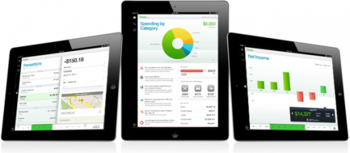The best cure for the midwinter blues is looking forward to the next fun thing on the horizon, and one of the greatest parts of college is planning for spring break! Although it's only a month into the semester and your days of fun in the sun may seem far away, that glorious week off will come sooner than you expect. If you're planning on traveling during spring break this year, it's a good idea to plan ahead so that you have extra spending money. Check out our list of ways that you can cut your spending this winter so that you have plenty of cash come March.
The key to saving money is to not waste money on things that you don't really need!
"It's important to understand what your true needs are, and that what you want isn't necessarily what you need," says Jeffrey Goodman, first vice president of investments for the financial services company Raymond James & Associates. While your twice-weekly (or even daily) Starbucks drinks can feel like a necessity, they really aren't. Try to limit your coffee runs to once a week, or even better, switch to making your own coffee at home before you run to class.
Let's say that you get your Starbucks fix twice a week. At approximately $4 per drink, you'd save $8 a week, which adds up to $48 saved by March!
Another unnecessary expense that could get in the way of your saving is that inevitable trip to the campus café for a quick bite to eat between classes. Instead of falling into that snack trap, plan ahead and bring something with you to snack on, like nuts, a granola bar or fruit.
You could also consider investing in a filtered water bottle, such as a bobble, that you can refill over and over, instead of constantly shelling out money for bottled water. Bobbles are great for the environment, too; using one bobble for two months equates to using 300 single-use water bottles!
Getting a job isn't just good for bulking up your resume; it can also help you put some extra money in your pocket during the semester. Do some research to find out if your university is offering any on-campus, part-time student jobs, like in the student union, in the library or at the campus bookstore, and check out the restaurants around campus as well.
Odd jobs here and there such as babysitting can also be a good option. "I asked my sorority sisters for any babysitting families they wanted to ditch for a night or two," says Kirsten Ballard, a senior at UNC-Chapel Hill. If you work a part-time job that pays $10 an hour for 10 hours a week, you could earn an extra $600 by March!
You're being careful with your money and watching what you spend, when all of a sudden you come across a pair of heels that you just can't resist -- and your credit card is within your reach. We know it can be incredibly hard to make good financial decisions when it's so easy to whip out a card to pay for a meal or online shop. We suggest keeping your card out of sight so that you won't be tempted and only withdrawing enough cash for what you need for the week or month.
"I took my credit cards out of my wallet and just get cash out once a week for gas and necessities," Kirsten says.
If you do have extra cash on hand, make sure to keep it in a safe or somewhere it can't easily be found.
Beverly Harzog, author of Confessions of a Credit Junkie: Everything You Need to Know to Avoid the Mistakes I Made, says it's important to keep track of anything you buy with your card and limit how much you charge to it.
"...If you have credit cards, be sure you don't charge more than you can pay off when the bill comes in the next month," she says. "This is where having a budget and tracking your spending can help you stay out of credit card debt. Be very diligent about this, because you don't want to graduate from school with both student loan debt and credit card debt."
When you have a specific event to save up for, it's important to create a realistic budget and stick to it. While this isn't the easiest thing to do in the expensive world of college, Goodman says, "it's important to have discipline and self-control when it comes to your budget." Plan your week in advance and think about how much money you'll need for the necessities, like snacks, groceries and gas (while allotting some of your funds for the fun stuff).
Learning to effectively budget now is a skill that will be beneficial for the rest of your life. The sooner you know how to handle money, the better! For more budgeting tips, check out our article on how to make your college budget.
Harzog suggests "downloading one of the budgeting apps so that you can keep track of your spending via your smartphone." For example, the free Mint app can help you stay on top of your expenses by connecting directly to your bank account and tracking your transactions. The app even lets you set goals for yourself! All you have to do is set a date for your spring break trip and enter how much money you'll need by that time, and Mint will do the rest.
"There are several similar budgeting apps on the market, so do a little research and find the one that you're comfortable with," Harzog says.
Cooking for yourself means improving your culinary skills, eating healthier and, of course, saving money. Eating out can be extremely expensive, especially if you go to college in a big city, and those weekly dinners out can quickly add up.
One of the easiest ways to save money is to make meals yourself in your dorm or apartment kitchen. "My roommates and I will sometimes cook together instead of going out to eat," says Becky McColl, a senior at the University of Delaware. "It's a lot cheaper than going out, so it's a great way to save money, and cooking together is a lot of fun!"
If you live with roommates, you could have one day a week where one person makes a meal for everyone else, or have fun dinner themes, like Mexican night!
If you do go out, try to limit yourself to only eating out every other week, and be sure to check out websites like LivingSocial and Groupon first for coupons. Kirsten suggests ordering water instead of soda, which will also help you stick to your budget. Since restaurant portions are often hefty, save and bring home half of your food so that you have a free meal the next day.
Looking for more money saving tips? Her Campus has got you covered!







